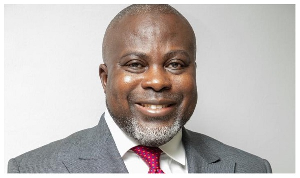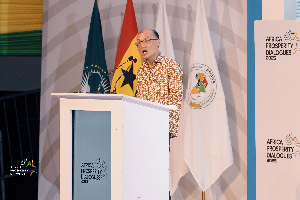Accra, Sept. 7, GNA - Ministry of Chieftaincy and Culture on Wednesday launched a five-year strategic plan to review institutional, legislative and regulatory framework guiding culture and chieftaincy in the country.
The plan estimated at GH?23.5 million will in addition, strengthen and promote the Museums and Heritage industry.
Launching the 30-page document on the plan in Accra, Mr Alexander Asum-Ahensah, Sector Minister said a blue print to guide the Ministry in the execution of projects and programmes from 2011 to 2015 had been obtained.
"This blue print will not only be the basis for the preparation of annual budget and plans but will also serve as reference document for development partners and other stakeholders who wish to support the Ministry in its implementation of programmes and projects," he added.
Mr Asum-Ahensah noted that the Ministry comprised culture and chieftaincy and the agencies under the sub-sectors were operating independently with separate regulatory framework.
He noted that as a result of the prevailing arrangement, there were no clearly defined structures, thus creating many challenges and limiting the potential and capacities of the sub-sectors to effectively partner government to create wealth and contribute to good governance.
Mr Asum-Ahensah said to address these challenges; nine thematic areas and some indicators had been formulated to enhance the performance of the sector.
He explained that the plan would support traditional authorities and chieftaincy institutions to address the inadequacy of funding and providing logistics to champion the cause of chiefs in the development process. It would also deal with apparent weaknesses of chieftaincy institutions due to the fact that chiefs had not been given formal representation in the local government structure.
On funding the plan, the Sector Minister noted that government could not undertake the strategies alone and would therefore require the mobilisation of funds from other sources.
He called on development partners to study the document carefully and provide the necessary contribution towards the effective and efficient implementation of the plan.
Daasebre Osei Bonsu, Asante Mamponghene called for the elevation of the Ministry to Cabinet status to facilitate budgetary allocation to the various institutions operating under it.
Naa Professor John S. Nabilla, Wulugu Naba and President of National House of Chiefs described the strategic plan as important since its implementation would provide a positive direction to the Ministry.
He noted that the plan would ensure that the Ministry linked up other sectors to boost tourism and create wealth for the nation.
Dr Angela Langenkemp, Programme Manager; GIZ (German Technical Co-operation)- Support for Decentralisation Reforms, in an address read on her behalf, noted that the growth of developing countries partly depended on the growth of their culture.
"We cannot develop as a nation unless our systems and strategies are informed by our cultural values. No nation has developed neglecting its culture," she said.
General News of Wednesday, 7 September 2011
Source: GNA
















